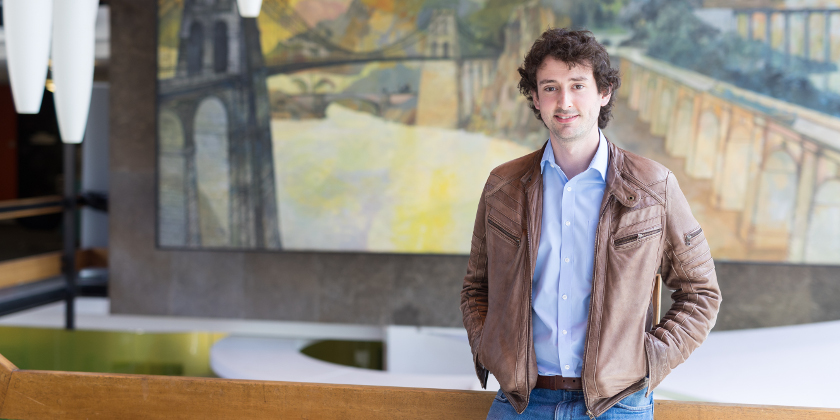
April 9, 2018, by Jackie Thompson
Why I Chose to Do a Masters Degree
Craig Goodere, MA Ancient History (2013)
After my ancient history degree, I decided to study for a masters. Now I’m working for the University as a planning and development officer, so I’ve more or less become part of the furniture!
The natural next step
I decided to stay on at the University in all honesty because it just seemed like the natural thing to do. I was really enjoying my degree in ancient history, got on well with the staff, and was able to secure a paid studentship role for the duration of my postgraduate studies. This kind of meant I had a foot in both doors anyway. I figured there was nothing to lose and everything to gain staying on for another year.
The application process was much simpler than I’d expected and certainly nowhere near as long as UCAS. I didn’t have an interview for my masters but I did have one for my studentship role.
The independence
The main difference between my degree and masters course was probably the greater independence, which I really enjoyed. The onus was very much on ourselves to identify our topics and find things out for ourselves, although the staff were always there to help. I was lucky to get involved with a collaborative research/exchange programme with Humboldt-Universität zu Berlin in Germany. I would definitely recommend studying abroad to others.
The skills
After my masters I decided to take advantage of some time out and travelled while I had the time and savings to do so. I also did some volunteering work for the NHS and helped out with my old exchange programme in between so I could gain more experience. It was because of this exchange programme that I came to realise I’d like to help others experience the same things as I had done at university, which is what led to working within higher education.
My masters degree definitely helped me develop my career as it covered so much more than just historical facts. It exposed me to language skills, analytical thinking, international collaboration, independent working, and so much more besides. It certainly provided me with some great talking points for my CV and in interviews.
Be true to yourself
Forget about everything else to start with and think about whether you actually want to spend another one or two years studying and writing essays. A masters qualification can be very rewarding but it also takes a lot of time and effort to complete. If that’s something you can commit yourself to, then you’re already halfway to achieving your goal.
If you’re not in a position to go straight into your masters because of funding concerns, I’d also like to say don’t worry. I know several people who took time out to raise money and then came back to their studies later on. It could be that studying part-time could also be the right option for you.
And finally… be true to yourself. Do something because you want to and not because other people have told you to. A sense of humour goes a long way too!
If you’re interested in pursuing a masters or PhD, we’re here to help you every step of the way. Talk to a careers adviser about your career ideas, applying for courses, and options after your studies. Also check out our further study webpages for information about courses and funding.
No comments yet, fill out a comment to be the first

Leave a Reply